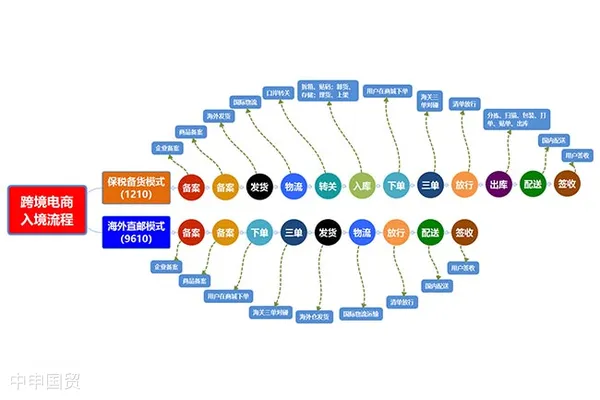- Shanghai Zhongshen International Trade Co., Ltd. - Two decades of trade agency expertise.
- Service Hotline: 139 1787 2118
With the continuous development of the ChineseCross-border E-commerceThe rapid development of Chinas cross-border e-commerce and its growing share in the global market have prompted increased market regulation in some countries. As two major markets, the United States and Japan have recently implemented new measures to strengthen oversight of cross-border e-commerce goods from China.

U.S. Congressman Mike Gallagher, Chairman of the House Select Committee on the Strategic Competition Between the United States and the Chinese Communist Party, recently criticized the alarming growth in the number of small-value duty-free package imports. Reports indicate that approximately 1.05 billion shipments entered the U.S. duty-free in 2023 under the de minimis exemption mechanism, a 53% year-on-year increase. This surge was largely driven by small-value packages from China, including products from e-commerce platforms Shein and Temu (the overseas version of Pinduoduo).
Additionally, U.S. Senators Sherrod Brown and Rick Scott sent a letter to President Joe Biden calling for the abolition of the de minimis exemption mechanism, arguing that it harms U.S. manufacturers, workers, and communities while allowing illegal goods to enter the U.S. market.
In Japan, the Ministry of Economy, Trade and Industry (METI) has also begun tightening regulations on cross-border e-commerce. In response to frequent incidents involving overseas online purchases, such as power bank fires, METI will require overseas electronics sellers directly targeting Japanese consumers to appoint a domestic representative responsible for safety management and dispute resolution, with the representatives information publicly disclosed. This new regulation aims to enhance consumer trust in merchants and will be implemented by 2025.
METI also plans to submit amendments during the current Diet session, including revisions to four product safety laws such as the Electrical Appliances and Materials Safety Law, to strengthen safety oversight of online products. If sellers fail to take appropriate measures to address incidents, the government will require e-commerce platforms to remove the listed products.
According to statistics, there were 103 major product incidents related to online purchases in 2022, six times the number a decade ago. This move by the Japanese government aims to raise product safety standards and ensure consumer rights are protected.
These new measures in the U.S. and Japan demonstrate that major global markets are intensifying regulation of cross-border e-commerce goods. This presents a new challenge for Chinese cross-border e-commerce businesses, which must pay closer attention to compliance with target market laws and regulations, ensure product quality and consumer safety, and maintain and expand their overseas market share. At the same time, this represents a significant adjustment to the global e-commerce ecosystem, signaling that cross-border e-commerce development will increasingly be influenced and constrained by international regulations.
Related Recommendations
? 2025. All Rights Reserved. Shanghai ICP No. 2023007705-2  PSB Record: Shanghai No.31011502009912
PSB Record: Shanghai No.31011502009912









